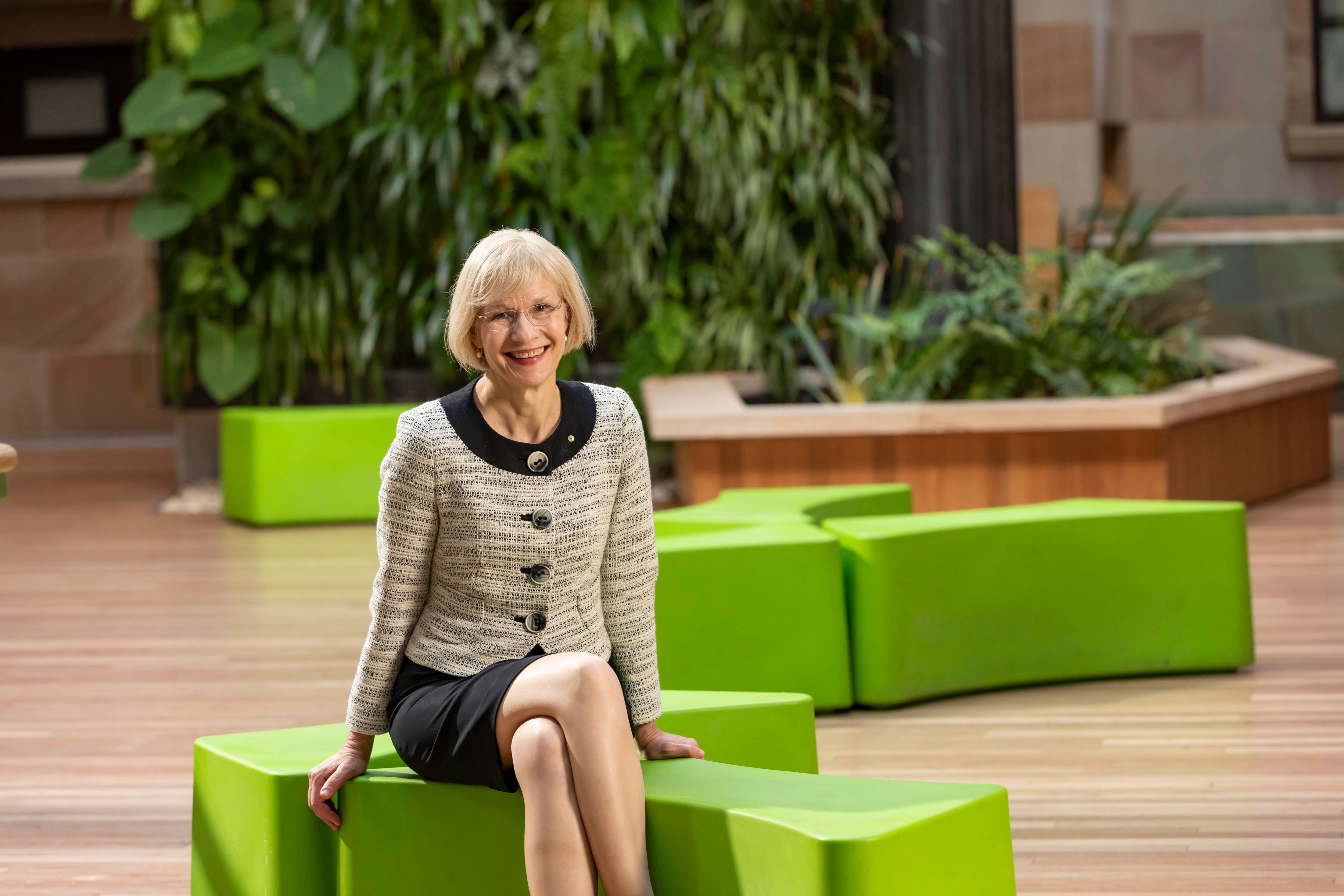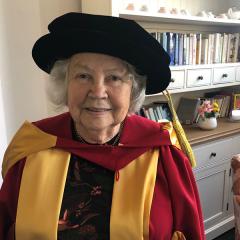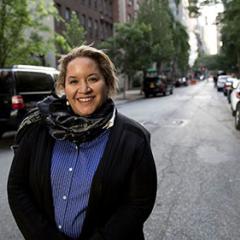UQ Vice-Chancellor's International Women’s Day message
The theme of this year’s International Women’s Day is 'Choose to Challenge'. It’s a theme that reflects the reality that whenever society undergoes change, it is accompanied by challenges.
The challenge of knowing what needs to change. The challenge of knowing how to make that change happen. And, then, the challenge of embedding change – or improving on it – over time.
As we celebrate International Women’s Day this week, it’s important to reflect on the many challenges that have already been conquered, over generations, to get us to where we are today.
I think of the bravery of people like Dr Merle Thornton, who famously chained herself to the bar at Brisbane’s Regatta Hotel in 1965 to protest against the prohibition of women drinking in public bars. Dr Thornton, who was also a UQ academic, went on to form the Equal Opportunities for Women Association – and her activism led to many changes in laws and practices that had previously prevented women’s full participation in Australian workplaces.
Over the course of the past century, there has been really important progress in terms of the fair and equal representation of women in many aspects of Australian society.
Going back to the foundation of this University, for instance, women comprised around 28 per cent of all students (there were 23 women amongst the original 83 commencing students at UQ in 1911).

Fast-forward 110 years and, today, women make up the majority of UQ students. In fact, the proportion of female representation on our campuses reached 56 per cent of all UQ students in 2020.
However, despite these foundational achievements in the education system (which ought to set them up for career success), not nearly enough of Australia’s highly-educated women are progressing to positions of leadership.
Within the higher education sector, for example, women currently comprise only around 20 per cent of senior professor and other senior leadership roles, across all Australian universities.
At UQ, the representation of female level-E professors has increased from 21 per cent in 2017; to more than 26 per cent in 2020.
While it’s encouraging to see this kind of improvement over recent years, it does highlight that there is still so much more to do in terms of achieving true gender equality in our workplaces.
Study after study shows that female researchers are driven out of academic careers by myriad structural and cultural barriers.
One of the most well-known studies exploring the barriers that women face throughout their careers was published back in 2007 in the Harvard Business Review. Titled Women and the Labyrinth of Leadership, the article found that women’s career progression is typically undermined by a variety of factors, including vestiges of prejudice, leadership style and family responsibilities.
In the conclusion to the article, the American scholars Alice Eagly and Linda Carli dismissed the metaphor of a 'glass ceiling' that supposedly denies women access to the most senior leadership positions. In their words:
“The glass ceiling fails to incorporate the complexity and variety of challenges that women can face in their leadership journeys. In truth, women are not turned away only as they reach the penultimate stage of a distinguished career. They disappear in various numbers at many points leading up to that stage.”
I believe it’s in all of our interests (men and women) to challenge this status quo. It is only by gradually dismantling those barriers that hinder the career progression of women that we will stop this silent female brain drain.
David Morgan, the former CEO of Westpac, really captured this sentiment best when he said of gender equality:
“It‘s not a compliance issue; it’s not a diversity issue, and it‘s not a social responsibility issue. Yes, it’s the right thing to do, but it‘s also the strategic thing to do.”
I agree. This issue is really about ensuring the best and brightest women in our society are given equal opportunity to deploy their many talents, for the benefit of our universities, our businesses, our government institutions – and our nation.
As I said at the beginning of this article, the theme for this year’s celebrations is 'Choose to Challenge'. It’s a theme that calls on each of us to challenge the status quo.
It invites continued vigilance in inspiring positive change that advances the causes of gender equality and respect for women. It’s also a challenge to seek out, support and celebrate the achievements of women – especially those women who are a big part of our daily lives.
One practical thing we can all do, for instance, is to sign The Merle Pledge, which involves making a commitment to ensuring that both men and women are equally represented, on stage, at conferences and in panel discussions.
The idea is that if enough of us accept this challenge, then, together, we’ll raise the profile of women in public and professional forums. In short, we’ll help to create the sort of change that benefits women everywhere – and our society more broadly.
So, as we celebrate International Women’s Day in 2021, I really do urge you to join me in choosing to challenge.
Professor Deborah Terry AO
Vice-Chancellor and President






